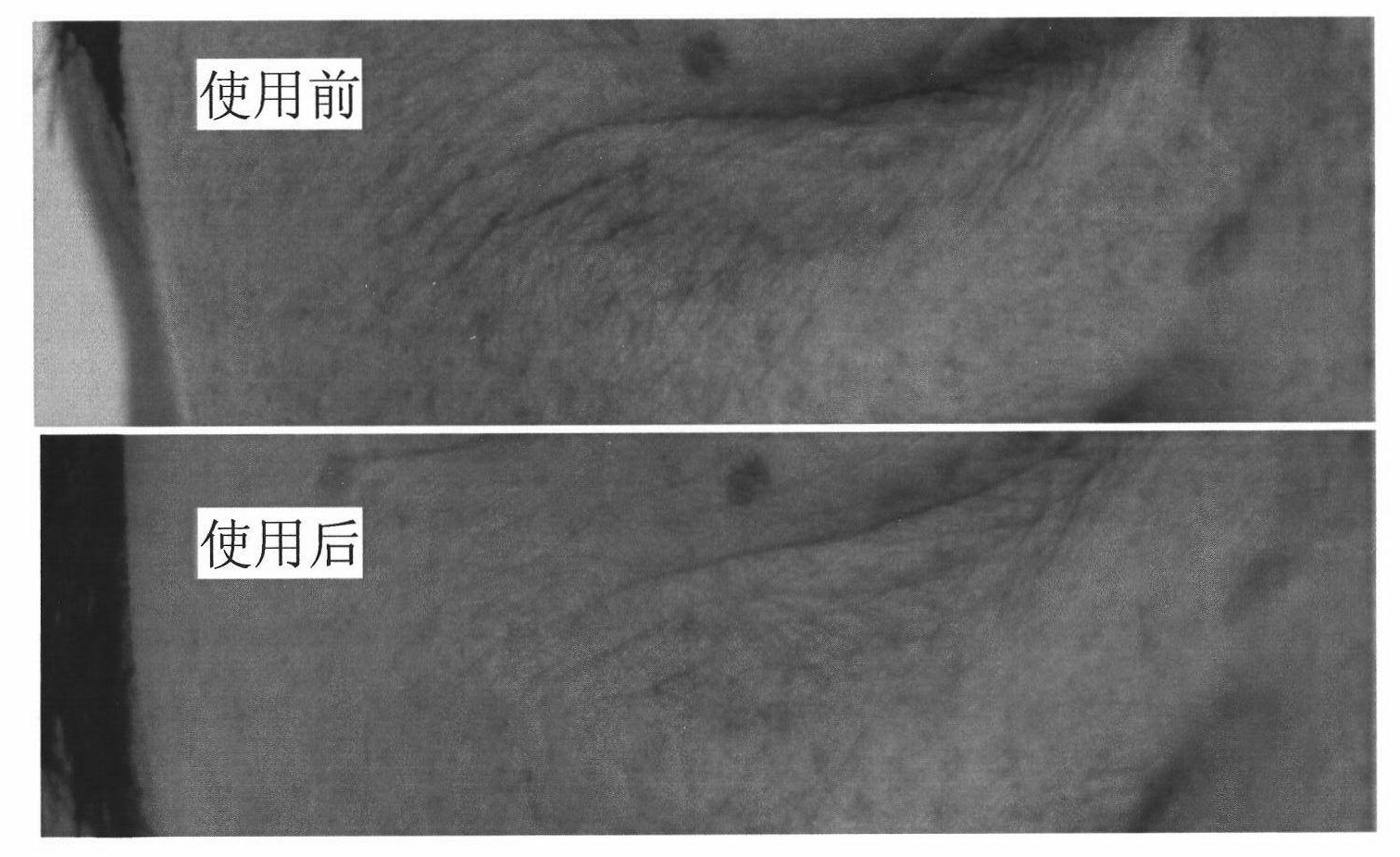Method for extracting oat beta-glucan
A technology of glucan and oatmeal is applied in the directions of pharmaceutical formulations, preparations for skin care, and medical preparations containing active ingredients, which can solve the problems of high production temperature, high cost, and difficult removal, and achieve high safety and reduce Fine lines, improve facial redness
- Summary
- Abstract
- Description
- Claims
- Application Information
AI Technical Summary
Problems solved by technology
Method used
Image
Examples
Embodiment 1
[0025] Choose oat bran with a particle size of 20 mesh. The starch granules or powder and floating dust on the surface of the oat bran were removed by a starch sieving machine (Xinxiang Sanhe Vibration Equipment Co., Ltd.) using a 60-mesh sieve. Oat bran was stirred with water at 50° C., the weight ratio of oat bran to water was 1:20, pH was adjusted to 8, and stirred for 1 hour. After centrifugation at 5000 rpm, the filtrate was collected, cooled to 30° C., adjusted to pH 4.5, stirred and allowed to stand for 1 hour. The filtrate obtained by centrifugation at 5000rpm was added with low-temperature α-amylase (purchased from Sigma, A-3176, Type VI-B, enzyme activity 24000U / g), and the dosage was 0.42g low-temperature α-amylase / 100g oat bran. At 40° C., pH value 6, treated for 1 hour, filtered with diatomaceous earth to obtain a clear liquid. Filtrate with an ultrafiltration membrane with a molecular weight cut-off of 100,000 Da, collect the retentate, obtain oat β-glucan solu...
Embodiment 2
[0027] Choose oat bran with a particle size of 60 mesh. The starch granules or powder and floating dust on the surface of the oat bran are removed by using a 80-mesh sieve through a starch screening machine. The oat bran was stirred with water at 40° C., the weight ratio of the oat bran to water was 1:30, the pH was adjusted to 7, and the mixture was stirred for 5 hours. Filter through a 100-mesh filter cloth, collect the filtrate, cool to 10°C, adjust the pH to 5.5, and let stand for 3 hours after stirring. Centrifuge at 5000rpm to obtain filtrate, add low-temperature α-amylase (enzyme activity 24000U / g), the dosage is 1.25g low-temperature α-amylase / 100g oat bran. At 45°C, the pH value was 6.5, treated for 2 hours, and filtered through a diatomaceous earth plate to obtain a clear liquid. Filtrate with an ultrafiltration membrane with a molecular weight cut-off of 50,000 Da, collect the retentate, obtain oat β-glucan solution, and freeze-dry. The extraction rate is 78%, an...
Embodiment 3
[0029] Choose oat bran with a particle size of 40 mesh. Use a 60-mesh sieve through a starch sieving machine to remove starch granules or powder and floating dust on the surface of the oat bran. Oat bran was stirred with water at 45° C., the weight ratio of oat bran to water was 1:25, pH was adjusted to 7.5, and stirred for 2 hours. After centrifugation at 10,000 rpm, the filtrate was collected, cooled to 20° C., adjusted to pH 5.0, and allowed to stand for 0.5 hours after stirring. Centrifuge at 5000rpm to obtain filtrate, add low-temperature α-amylase (enzyme activity 24000U / g), the dosage is 0.85g low-temperature α-amylase / 100g oat bran. At 35° C., with a pH value of 5.5, it was treated for 1.5 hours, and filtered through a diatomaceous earth plate to obtain a clear liquid. Filter with an ultrafiltration membrane with a molecular weight cut-off of 80,000 Da, collect the retentate, obtain oat β-glucan solution, and freeze-dry. The extraction rate is 82%, and the purity is...
PUM
| Property | Measurement | Unit |
|---|---|---|
| particle size (mesh) | aaaaa | aaaaa |
| particle size (mesh) | aaaaa | aaaaa |
| particle size (mesh) | aaaaa | aaaaa |
Abstract
Description
Claims
Application Information
 Login to View More
Login to View More - Generate Ideas
- Intellectual Property
- Life Sciences
- Materials
- Tech Scout
- Unparalleled Data Quality
- Higher Quality Content
- 60% Fewer Hallucinations
Browse by: Latest US Patents, China's latest patents, Technical Efficacy Thesaurus, Application Domain, Technology Topic, Popular Technical Reports.
© 2025 PatSnap. All rights reserved.Legal|Privacy policy|Modern Slavery Act Transparency Statement|Sitemap|About US| Contact US: help@patsnap.com


